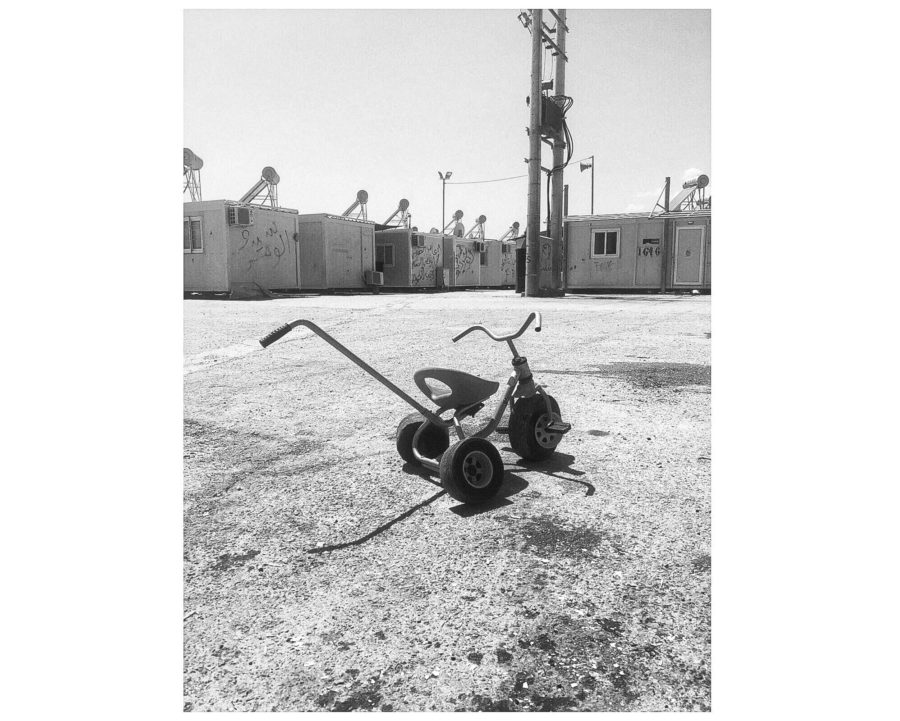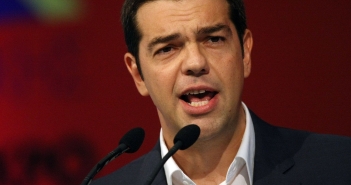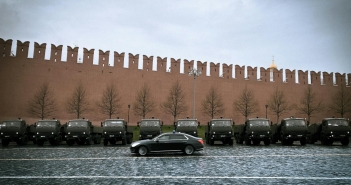The future of a generation born during over eight years of conflict in Syria is under threat. More than half of all school-aged Syrian children living as refugees in neighbouring countries do not have access to formal education. In this second of a two-part series humanitarian activist and author Bruna Kadletz addresses the educational crisis for school-aged refugees.
From the balcony on the second floor where an orphanage shelters around forty Syrian children, you can see on the horizon a majestic natural wall of snow-capped mountains. Between the building, the clear blue sky and the highlands, plantation plots, mosques and other edifices adorn the fertile valley, which served as foodstuffs for the Roman provinces of the Levant, during antiquity.
The Beqaa Valley, in eastern Lebanon, has since become a place of intense pressure, oscillating between hospitality and hostility. In the aftermath of the Lebanese Civil War (1975 – 90), the government dedicated itself to rebuilding the capital Beirut, but neglected rural areas. As a result, the Beqaa Valley has one of the highest levels of inequality in the country, concentrating a mix of poverty and political abandonment.
Since 2011, the influx of Syrian refugees, have exacerbated the inequality and poverty in the valley. Due to its proximity to the Syrian border, with Mount Lebanon to the west and the Anti-Lebanon range to the east, it received approximately three-hundred-and-fifty-thousand[1] refugees, who escaped the brutality of the on-going Syrian Civil War. This influx has had a profound impact on the region´s political, social and economic environment.
Throughout this period, waves of hospitality have been punctuated by xenophobic attacks, harming refugees in need of protection, and generating further hostility. In June 2019, an apparently accidental fire[2] near the Deir al-Ahmar Refugee Camp displaced around six hundred refugees in the valley, exposing the latest tensions between residents and refugees. According to Nasser Yassin, researcher at the American University of Beirut, the incident, and how it was handled, is an example of ‘collective punishment’ perpetrated by local governments in order to push Syrians away.
Despite the harsh living conditions for both local populations and newcomers, punitive responses and policies inflict further exclusion and trauma on refugees, with particularly adverse effects on children, who are restricted from enjoying a dignified life and education.
In April 2019, I travelled to the Beqaa Valley to visit the Molham House, an orphanage housing Syrians kids who have lost their parents or the families taking care of them. The Molham team is responsible for the physical, emotion and social well-being of the children, particularly those who carry the trauma of the war.
Before moving to the orphanage, many of the Syrian children did not enjoy access to education, food, or a clean and safe place to live. Some could not speak on arrival in the house, reflecting psychological wounds, while others were scarred with physical injuries. The Molham team has been working to improve the children’s lot by offering a home, medical care, psychological support and education.
We arrived in the late morning, when the children were getting ready for school. Ghaithaa, a Syrian refugee herself, who works and lives in the Molham House, introduces the house to us. As we walk through the building´s chambers, the playful children follow us excitedly.
After our short tour, I found my way to the balcony. The view was breathtaking not only for its natural beauty, but also because of the tough living conditions of refugees. There were countless informal tented settlements spread next to plantation plots. During the wintertime, when freezing temperatures, snow and torrential rain wreck the settlements, refugees are left in desperate need of emergency aid.
Access to decent housing is one of the many challenges in the region. Preventing child labour and ensuring an education for school-aged children and youth is another. In early 2015, the Lebanese government suspended the registration of Syrians entering the country and imposed legal restrictions on those already inside the territory, suspending access to formal work, documentation and freedom of movement, and implementing a yearly residency renewal fee of US$200.
Adults are thus unable to provide for their families and live with scarce resources in precarious conditions. In this extreme context, families end up depending on child labour to survive. Recent research published by UNICEF: Survey on Child Labour in Agriculture in the Bekaa Valley of Lebanon: The case of Syrian refugees[3], revealed that ‘4,592 children, between the ages of 4 and 18 years, were reported as actively working, out of a total of 6,972 children living in the surveyed households.’ The research also found that 74.8% of surveyed children work in the agriculture sector and for 85.6% of the working children, family support was the leading motive to work.
Besides insufficient public schools, lack of financial resources to pay for transportation, school supplies and registration fees, child labour also curtails education opportunities through non-enrolment, school dropout, and/or poor academic performance.
In the orphanage in the Bekaa Valley, children face familar challenges on arrival. The main reasons for low enrolment levels are lack of documents and financial problems.
Another issue for the children is the period in which they are permitted to study. Lebanese public schools segregate Lebanese students from Syrian refugees. Ensuring education for all, schools work double shifts. In the morning, it´s learning time for Lebanese students and other foreigners, whereas in the afternoon, it´s the Syrian refugees’ turn to learn.
Ghaithaa tells us that ‘some kids complain about going to school in the afternoon, they feel tired studying from 1 to 7pm. They return home very tired. Plus, they´re not psychologically fit to study.’
‘Refugees in Lebanon have a very hard life,’ she concludes.
Despite all the difficulties, the sentiment permeating the environment is one of care. In the orphanage, Ghaithaa is responsible for ten girls, ranging in age from six to twelve.
‘Each one carries a story. Of course, all of us have fled from Syria, from the war, and we left in harsh conditions. Many of the children have lost someone they love, so this house is a shelter for them, a place where they feel safe, where they are loved, where they are being educated.’ she says.
‘Kids are the most important thing for us,’ she says, with tears in her eyes.
During times of humanitarian crisis and uncertainty, access to a quality education is a daily challenge faced by millions of refugee children and youth around the world. Maintaining access to education in times of crisis is complex, demanding local, regional and international efforts, and political will. Beyond dismantling punitive politics toward refugees, ensuring inclusive policies and developing plans for education, we must cultivate a culture of care and affection.
In creating a safe, healthy and playful environment for children deeply wounded by the atrocities of wars, armed conflict and social collapse, we may regenerate lost generations.
[1] Data on registered Syrian refugees in Lebanon, UNHCR. Available at: https://data2.unhcr.org/en/situations/syria/location/71
[2] ‘Lebanon´s Deir al-Ahmar: how an incident displaced 600 refugees,’ Anchal Vohra for Al Jazeera. Available at: https://www.aljazeera.com/news/2019/06/lebanon-deir-al-ahma-incident-displaced-600-refugees-190609095940222.html
[3] Rima R. Habib (2019). ‘Survey on Child Labour in Agriculture in the Bekaa Valley of Lebanon: The Case of Syrian Refugees.’ Beirut, Lebanon: American University of Beirut Press. Available at: https://www.unicef.org/lebanon/media/1621/file/ChildLabourSurvey_2019.pdf




